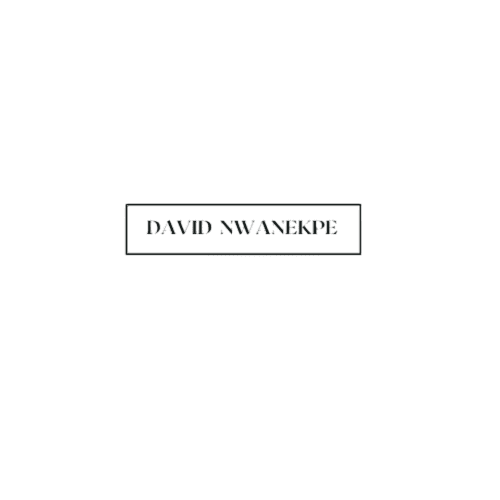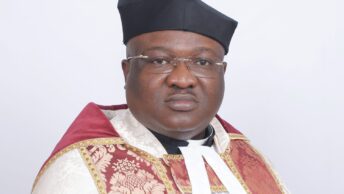The story begins in the 20th century when waves of immigrants from Nigeria, along with other parts of Africa, made their way to North America, bringing with them a rich tapestry of cultural and spiritual beliefs. These communities sought to establish a religious foundation that felt like home—thus, the seed for the Anglican Church of Nigeria in North America was planted.
In the early 2000s, the need for a more formal structure became apparent. The current Primate of the Church of Nigeria, the Most Rev. Henry Ndukuba, has been a source of inspiration to the group of the Church of Nigeria North American Mission (CONNAM) in this modern day, despite the current challenges from disbanded dioceses like ADOTW and ADOTT in North America. The Primate has continued to encourage the Nigerian faithful in North America to be of great courage and faithfulness to their calling.
It is important to note that all those taking the Church of Nigeria to court in North America are NOT rooted and committed members of the church. Nobody born of the church takes the same church to court without first going through the order of the church court authority or system.
However, it is also important to state the facts of the crisis in CONNAM. It started with the greed of some bishops, clergy, and four or five lay members of the then Diocese, who felt that they were more powerful than the Church.
The September 2023 Synod and the Crisis
In September 2023, the Church of Nigeria held a General Synod in the city of Nnewi, Anambra State, Nigeria. When the church passed a resolution to dissolve its dioceses in America, the vote was taken and passed. Meanwhile, back in America, some individuals rose against the Church—suing it in court and claiming to be representatives or speaking for her, while members of the diocesan board of that Diocese were not informed or gave their consent.
Our church mission was drawn into confusion and crisis. Nevertheless, our parishes are still doing fine and healthy.
Call to Clergy and Members
As Anglican priests and bishops, we swore an oath of canonical obedience to the Church and its leadership. It is improper for a cleric to spearhead and supervise the suing of the Church in court without first seeking peaceful resolution through Church authority.
However, be it as it may, we encourage all the warring parties to come together and be good Christians. Let us have each other’s backs once again. Let us come back to terms and live as true preachers of the Gospel. No matter your grievance, remember that heaven at last is our goal.
Let the love that existed between us in the past return. Let’s begin to love each other again. I encourage all Nigerians to be focused on their heavenly calling and be good ambassadors by ways of character and godly living.
Growth of the Church of Nigeria in North America
Many Nigerian Anglicans felt that the existing Anglican bodies did not fully represent their theological views or cultural heritage. This led to the creation of the Anglican Church of Nigeria in North America, an institution that catered to the spiritual needs of Nigerian expatriates and upheld the doctrinal stances familiar to them.
As the church took root, its influence and congregation grew exponentially. It became a hub not only for worship but also for community support and cultural preservation. The church organized events, social services, and educational programs that reinforced the ties between members’ faith and their everyday lives.
The church’s growth mirrored the increasing diversity of the Anglican Communion worldwide—showcasing a unique blend of tradition and adaptation. However, the journey was not without hurdles.
Global Anglican Challenges
The Anglican Church of Nigeria in North America found itself at the heart of theological debates rippling across the global Anglican Communion—issues such as the ordination of women, marriage, and sexual orientation. These issues sparked both conflict and conversation within the community, testing the Church’s unity and challenging its leaders to find a path forward that respects diverse viewpoints while maintaining doctrinal integrity.
Today, the Church of Nigeria North American Mission stands as a testament to the resilience and adaptability of faith in a changing world. It continues to grow, driven by a commitment to serve its community spiritually and socially—yet the road ahead remains complex.
Balancing Tradition and Modernity
The Church must navigate the delicate balance between tradition and modernity, consensus and diversity as it moves forward. It illustrates how faith communities can evolve and adapt—forging identities that resonate with both their heritage and present circumstances.
The mission of the Church of Nigeria Anglican Communion in North America involves establishing and nurturing Anglican congregations and communities under the oversight of the Church of Nigeria.
This initiative emerged in response to theological differences within the Anglican Communion, particularly concerning human sexuality and the interpretation of Scripture. Some conservative Anglican groups, including the Church of Nigeria, expressed disagreement with liberal interpretations within certain branches of Anglicanism, especially in North America.
The Way Forward
“The Way Forward” aims to provide an alternative for Anglicans who align with conservative theological positions—offering them a spiritual home within the broader Anglican tradition but outside of more liberal Anglican provinces.
Through this mission, the Church of Nigeria seeks to uphold traditional Anglican values and teachings, including adherence to the authority of Scripture and historic Christian doctrine. The goal is to provide a space where Anglicans who share these convictions can worship, grow in faith, and minister together.
Conclusion
In conclusion, we encourage clergymen to defend what they believe is right in the Church. We encourage all clergy fighting the same cause to stand firm in defending the rich culture and values of Nigerians in America.
All Nigerian faithful in America must continue to seek their heritage and stand for what they believe in. As the Church faces ongoing challenges, its story remains an essential chapter in the broader narrative of religion in contemporary society.
Ven. David Nwanekpe
Rector
Anglican Church of the Holy Spirit
Le








